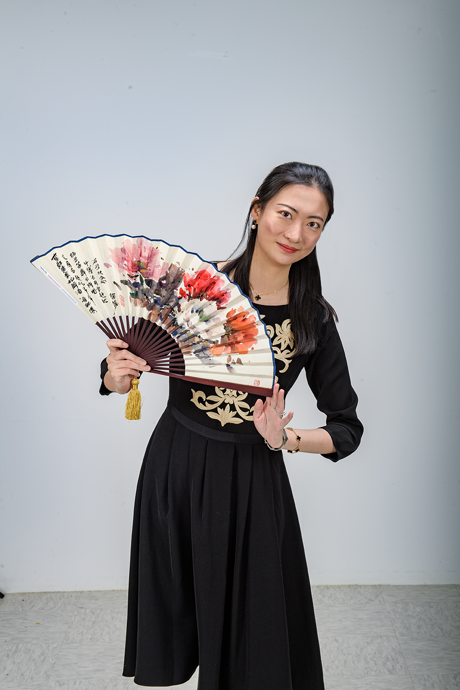Tailfeather
Professor Bohan Ye
Dr. Bohan Ye
 Dr. Bohan Ye, Assistant Professor of Economics, has many passions: students, research, teaching and singing—specifically in Chinese Operas. Born in Beijing, China, she fell for opera when she was a girl because of the beautiful costumes. She spent hours listening to performances until she knew them by heart and could sing them herself. Her grandmother arranged for her to train with one of China’s masters, and she spent all her after-school time practicing opera. While performing in New York City, she met her husband, who was a musician in the performance troupe. Opera is a passion, but it’s education that drives her. She knows the sacrifice and effort it takes to earn an education and pushes herself to make every lecture interesting and valuable.
Dr. Bohan Ye, Assistant Professor of Economics, has many passions: students, research, teaching and singing—specifically in Chinese Operas. Born in Beijing, China, she fell for opera when she was a girl because of the beautiful costumes. She spent hours listening to performances until she knew them by heart and could sing them herself. Her grandmother arranged for her to train with one of China’s masters, and she spent all her after-school time practicing opera. While performing in New York City, she met her husband, who was a musician in the performance troupe. Opera is a passion, but it’s education that drives her. She knows the sacrifice and effort it takes to earn an education and pushes herself to make every lecture interesting and valuable.
Why did you decide to be an economics professor?
I love teaching and research. Sharing my knowledge is a passion of mine. I want students to know what I know and how I learned it. It keeps my mind young too!
What is your focus/area of interest?
I have studied many subjects in different places. I studied finance at Tsinghua University in China, management science and psychology at the University of California, Berkeley, econometrics at Tilburg University in the Netherlands and economics at the University of Arizona. I am interested in using experimental methods to study economic questions, especially social preferences like trust and altruism.
How did you become interested in that area of study?
My undergraduate major was finance. After taking a psychology course taught by a professor from UC Berkeley, I became interested in psychology, as it reveals why people do what they do. I was happy to find out there exists an interdisciplinary field called experimental economics. It allows me to study an individual’s decision making and behavior with both solid economic models and creative design of psychology experiments.
Describe your teaching style.
I use an interdisciplinary approach to teach. I’ve always believed that my priority is to assist students in enhancing their critical thinking and practical skills. I believe that all students, regardless of their background, race, ethnicity or socio-economic status, can learn and thrive in an environment where they are stimulated and challenged, and where they feel reaffirmed and supported. I endeavor to create a classroom where all my students feel safe to participate and to enjoy challenges. In my opinion, every lecture is a stage performance, and the instructor is the only performer. I am trying to make my classes just like big shows!
What is Chinese opera and how does performing it enhance your teaching?
It is a comprehensive stage art style that incorporates music, acrobatics, martial arts, performance art, etc. Learning to perform for the opera helped me know how to teach because it allows me to control the learning pace by reading the audiences’ reactions so I can pause when needed for students to absorb the information.
What book do you recommend people read?
"The Book of Why" by Judea Pearl and Dana Mackenzie. It illustrates the scientific method of causal analysis—which is valuable to almost all researchers—and is deeply philosophical but very readable, using many daily examples.
What word or phrase describes you?
I am always curious about the world, thankful for what I have and optimistic about the future.


